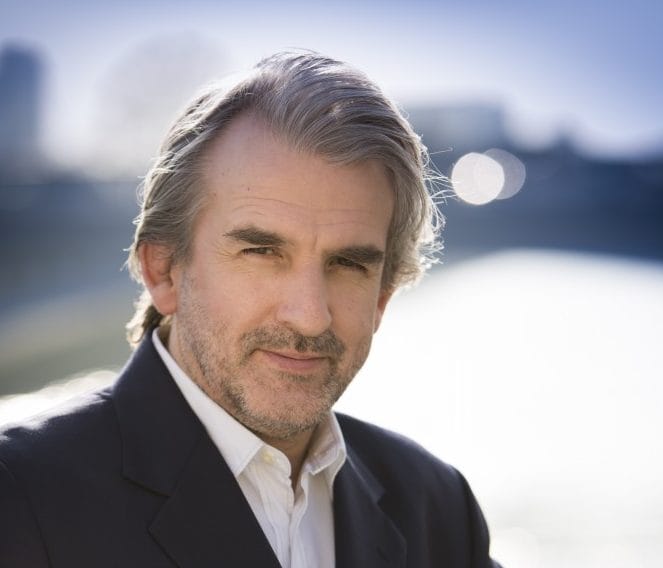Beethoven’s Interpreter

Barry Douglas returns to India with Camerata Ireland – the only orchestra to unite musicians from both Northern Ireland and Ireland – to perform Beethoven’s five piano concertos. Interviewed by Cynthia Lewis
Barry Douglas is more than just a renowned pianist and conductor. He is a man on a mission to engage with the world and heal it with music. In 1999, he founded Camerata Ireland to create a chamber orchestra of global excellence, combining musicians from Northern Ireland and Ireland. Their worldwide tours seem to signify that they’ve done just that.
ON Stage: What are your earliest memories of music and more specifically, Irish music? What does it mean to you?
Barry Douglas: I was listening to music on the radio and buying records from the age of four. I had heard young students in my elementary school playing the piano and violin and immediately wanted to play myself – a great moment. I heard Irish music in Sligo in the west of Ireland (my mother was from there) – great, long evenings of happiness and lively music.
OS: When did you know you wanted to become a professional musician? What was the journey like?
BD: I wanted to be a musician almost immediately but my school and my mother were nervous about music as a profession, and so I studied science first. But at the age of 16, I had to go back to music and then I really started studying very hard – quite a late age to start being serious.
OS: By founding Camerata Ireland, you’ve created a platform for Irish musicians to tour the world. What are some elements of Irish music international audiences shouldn’t miss?
BD: I wanted to create this orchestra as a reaction to the Irish peace process and the Good Friday Agreement, which is now 20 years old. The mission of the orchestra is to fly the flag for Ireland north and south – it is the only all-Ireland orchestra; to find and nurture new young Irish talent; and also to continually strive for excellence. We play Irish music quite often, and have commissioned young Irish composers, too. [Music] is part of our psyche and we are proud of our culture.
OS: How do you believe music can influence the peace process, not only in your home but across the world?
BD: Music and the arts are great builders of bridges and we as musicians have a part to play to make symbols and create room for people to get together and stay together. Obviously, we can’t negotiate new agreements, but we can stand up and applaud and celebrate through music the new positivity.
OS: What made you select Beethoven’s concertos for this performance? Which is your favourite?
BD: We often play the cycle of concertos, and this is music that is close to our hearts. It is a huge expression of harmony and positive energy and the strength and the power of these works never ceases to amaze us.
I don’t have a favourite, but I do love the lyricism of No. 4 in G and the power and beauty of No. 3 in C minor.
OS: What did you enjoy about your last performance at the NCPA with the Symphony Orchestra of India?
BD: It was my first visit to India, and I loved every second of it. I can’t wait to come back. I loved the vibrancy of the cities, and the orchestra was superb when we played Tchaikovsky No. 1. I loved the food and the people. In fact, I became vegetarian when I was in India and I still am vegetarian. This may be the first visit of an Irish orchestra to India – something I am very proud of.
Camerata Ireland will perform on 24th and 25th April at the Tata Theatre.
This piece was originally published by the National Centre for the Performing Arts, Mumbai, in the April 2018 issue of ON Stage – their monthly arts magazine.





